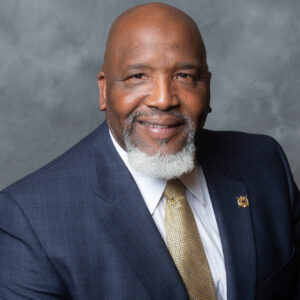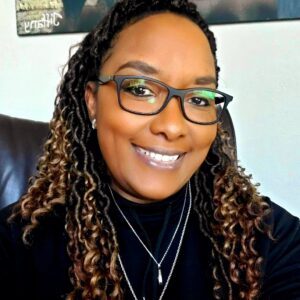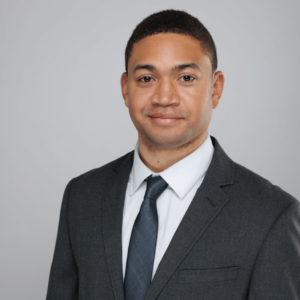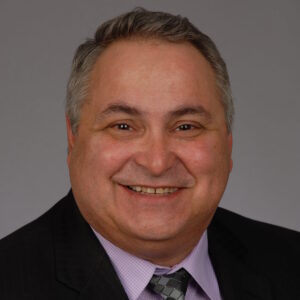Welcome to our Pride month edition of spotlight interviews, where we proudly highlight the voices and experiences of LGBTQ+ professionals in the insurance industry. We had the privilege of sitting down with these remarkable individuals to delve into their personal journeys, insights, and perspectives. They graciously answered a series of thought-provoking questions, shedding light on their career paths, challenges faced, and the positive shifts they have witnessed within the industry. Join us as we celebrate their accomplishments, share their wisdom, and champion a more inclusive future.
Has it been difficult to bring your authentic self to work while working in the insurance industry?

I did struggle with my journey previous to finding a home in the insurance industry. I did receive numerous discriminations in other fields I worked previously but found a home at Falvey Insurance Group. Not only am I accepted here but more importantly, I am supported here. I have also found interactions with other companies to be very welcoming and truly celebrate diversity and inclusion.

At times, I have felt apprehensive about sharing my whole self at work. I worry that I won’t be invited to have a seat at the table, that my voice will be discounted, or that my thoughts and ideas won’t be taken seriously. I have experienced this and I have watched it happen to others around me.
After a lot of reflection and reading on the topic of vulnerability, I have decided that I want to work with teams that embrace authentic connections, and to be part of a group that openly shares their wins, successes, struggles, fears, and mistakes while creating a safe space for others to do the same. This openness creates an atmosphere of trust, empathy and collaboration where team members feel comfortable taking risks, expressing ideas and seeking support. Vulnerability inspires compassion and understanding, and breaks down barriers between individuals while encouraging a culture of acceptance and inclusivity. I feel very fortunate to have found my team at Amerisure that fully embraces this. An intentional focus can not only build stronger relationships, but can also empower others to reach their full potential; leading to greater innovation, resilience, and success.

I cannot speak for the entire insurance industry. But working for Liberty Mutual has been a place where I can be my true self. It past jobs I have never revealed that I was transgender. This has been the first job where I felt seen.
In what ways has the insurance industry moved closer to diversity, equity, belonging and inclusion?

In the short time I have been in the industry, I have personally seen growth. I believe that between so much civil unrest within so many different communities that companies have started to take a strong stance on the issues and I believe see the benefits of a more diverse workforce. I also contributing this to great organizations like RISE, DAIP, APIW, and many others standing up and showing the importance DEI and spotlighting companies that are working toward a better future. This in turn pushes employees to work for better companies that have similar values.

Again, within Liberty Mutual I have seen women, and people of color being promoted. There are so many Employee resource groups and people that you can reach out to. We also celebrate all cultures, ethnicities, and sexes. Even in our quoting system we acknowledge non-binary individuals. Our health insurance insure gender affirming care. The company pays for surrogacy for same sex couples. There are so many different things.
What advice would you give your younger self beginning your career in insurance? What prepared you to be in the role/position you currently occupy?

I would tell myself that insurance isn’t what you think it is. It is actually a challenging industry with so much growth opportunity. It is also full of amazing people doing positive things in this world. As an accountant in my company, owning a couple of businesses prior helped me a great deal. I was able to learn so much of the accounting field while learning to grow great relationships with my clients.

Find a company with values that align with yours. When your values and beliefs are shared and practiced by the organization you work for, you are more likely to feel a strong connection to your work and find meaning in what you do.

Learn as much as you can! You can never stop learning. Reach out to people in roles that you desire. Increase your education. Take advantage of tuition reimbursement.
Do you see yourself represented in your peers and/or leaders in the insurance industry?

At this time, I do not. I don’t blame the insurance industry directly as I have seen so much positivity in my experiences. I just think companies need to do a little better job of showing what the insurance industry has to offer and extend the so-called olive branch to the community. I am personally, with my DEI committee, will be attending Pride on Sat June 17th to do our part to show the community a safe and accepting industry. I would love to share this space with my transgender and gender nonconforming family. I do hope other companies find ways to reach out to my community more so they can see just how great it is.

When I joined the insurance industry in 2016, I did not see myself represented among my peers or leaders. Over the past 7.5 years, I have seen that shift in a positive way. Because there has been increase in groups, like RISE, who are being intentional in focusing on inclusion and belonging, I believe more LGBTQ+ people are feeling safer being their authentic selves.
While feeling unrepresented at work can be a struggle, there is immense value in being seen and heard. I am grateful to have worked with teams where my thoughts, ideas, and perspectives are acknowledged and given a platform. For me, it has fostered a sense of validation and inclusion. Even though I don’t always find individuals who share my exact background, I feel my voice has been recognized and respected. This allows me to contribute in meaningful ways. It also empowers me to be able to share the narrative, challenge biases, and pave the way for a more diverse and inclusive workplace that embraces the unique contributions of each individual.

With only 2 years under my belt, I am a leader within the ERG. But I have yet to be a leader within the insurance industry. But stay tuned. That 5 year plan is already ahead of schedule!!
We extend our deepest gratitude to each interviewee for their courage and vulnerability in sharing their authentic selves. In a world where it is not always safe or easy to live one’s truth, their openness is truly inspiring. Their stories and experiences contribute to the ongoing dialogue on the importance of creating safe spaces and fostering acceptance for all individuals, showcasing resilience, authenticity, and the transformative power of diversity.
RISE stands as a proud ally, committed to creating a safe and inclusive space where the LGBTQ+ community can thrive and flourish in their careers. It is encouraging to witness the positive strides the industry is taking towards diversity, equity, belonging, and inclusion, however, we recognize that there is still a lot of work to be done for the entire industry to fully embrace diversity. Together, we strive to foster an environment that celebrates and values the unique contributions of every individual, promoting a future where inclusivity is the foundation of the insurance industry and beyond.
















